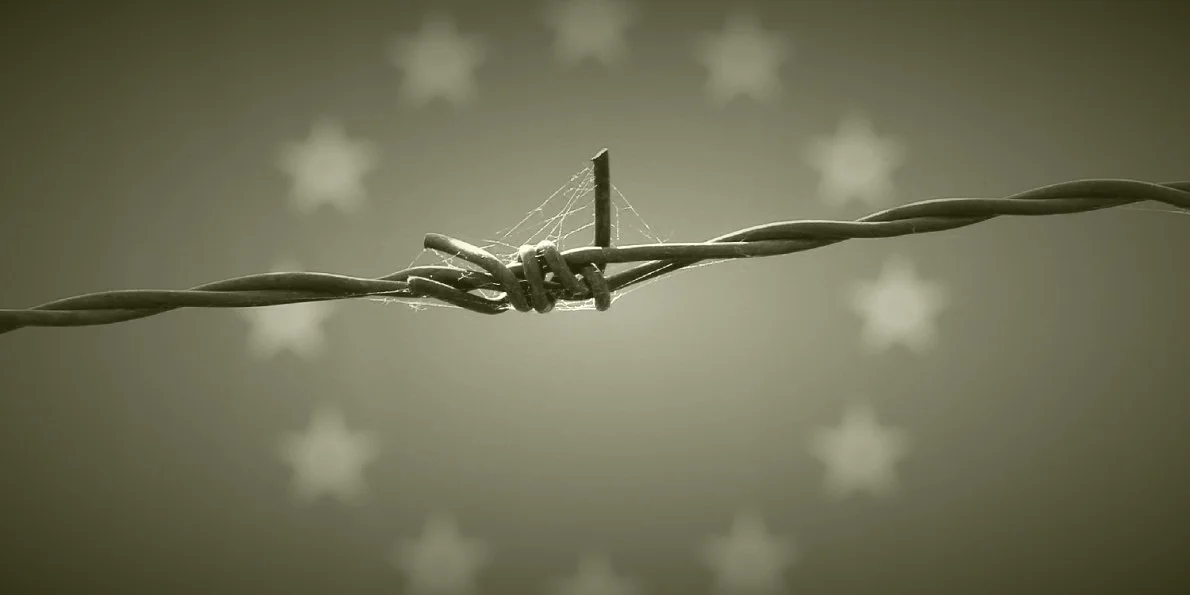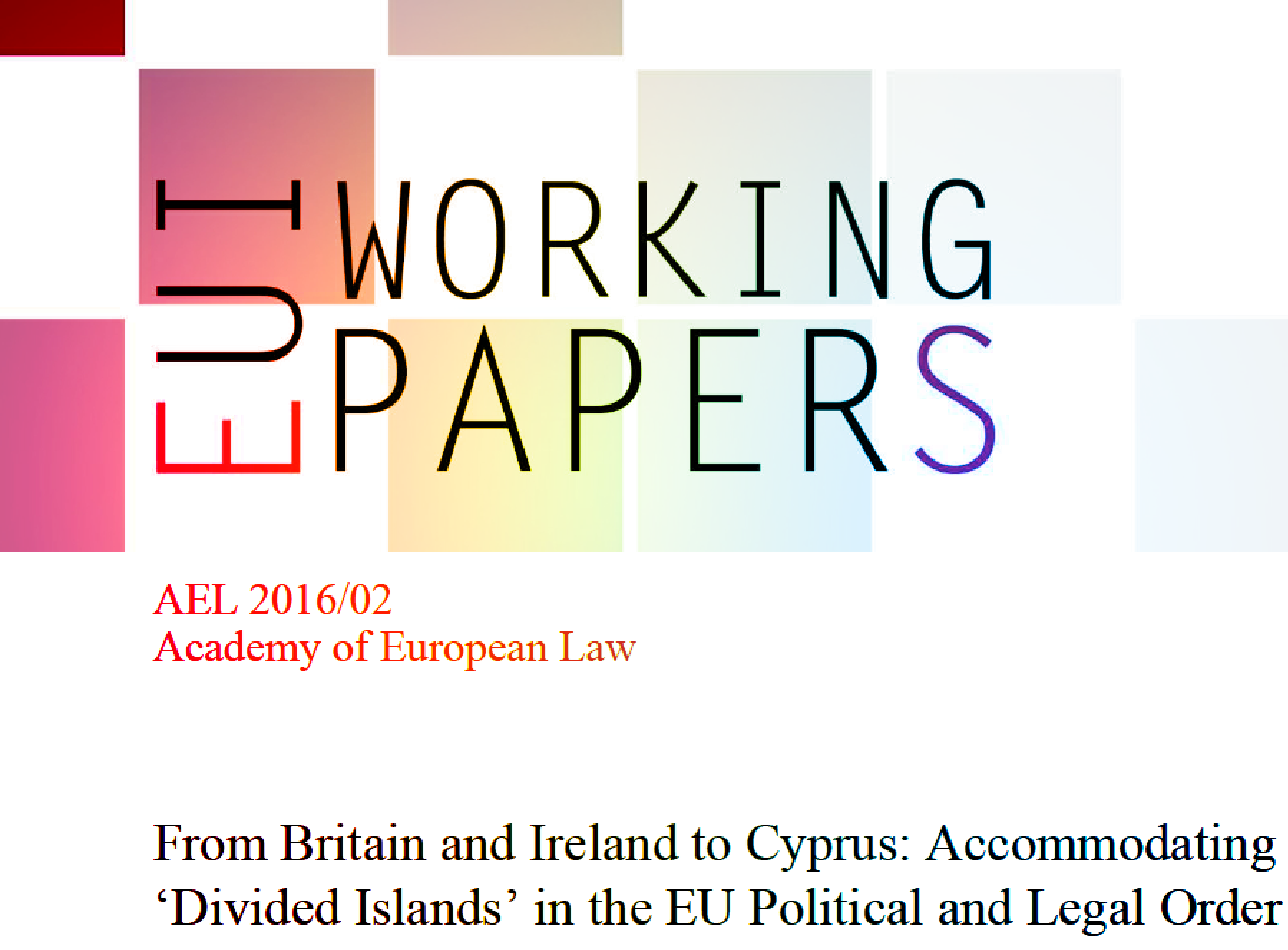Four Background Papers
The project builds on Nikos's previous research on the interrelationship between EU law, comparative constitutional law and conflict resolution theory. Here are four papers that provide for the theoretical background of the current project.
1. ‘Territorial Differentiation in EU law: Can Scotland and Northern Ireland Remain in the EU and/or the Single Market?’, 19 Cambridge Yearbook of European Legal Studies (2017) 287-310.
In the Brexit referendum of 23 June 2016, voters in England and Wales voted to leave the EU, while in Scotland and Northern Ireland they voted to remain. Following that, there has been a debate about how it would be possible to achieve the continuing presence in the single market of the UK constituent nations that do not want to be taken out against their will. This paper explores two pathways for Scotland and Northern Ireland to remain in the EU and/or the single market. The first entails the achievement of Scottish independence and the reunifi cation of Ireland through democratic referendums. To this effect, the paper reviews the right of secession of those two constituent nations under UK constitutional law. It revisits the debate on the appropriate legal basis regulating Scotland’ s future EU accession and discusses the Irish reunifi cation from an EU law perspective. The second pathway explores how it would be possible for Scotland and Northern Ireland to remain in the EU and/or the single market even without seceding from the UK. In order to do that, the paper points to the remarkable fl exibility of the EU legal order as evidenced in numerous cases of differentiated application of Union law. The paper shows that the EU possesses the necessary legal instruments to accommodate the divergent aspirations of the UK constituent nations.
The paper has been widely sited by academics and discussed by the media in the UK (The National, 16 July 2016; The Scotsman, 18 July 2016; BBC, 23 July 2016; The National, 14 November 2017; Irish News, 14 November 2017) and abroad. Spiegel Online presented it in a front page article.
2. Report on a Special Designated Status for Northern Ireland Post-Brexit, An Independent Opinion Commissioned by the European United Left / Nordic Green Left (GUE/NGL) Group of the European Parliament
The report suggests that the UK withdrawal agreement should recognise the special and unique circumstances concerning Northern Ireland. It should do so by providing for a special designated status. Such status should be understood as a mutually agreed arrangement that respects and protects the unique constitutional status of the region as provided by all three strands of the Good Friday Agreement. In particular, the special status should respect the principle of consent and the right of self-determination by providing for a legal route for the reintegration of Northern Ireland to the EU. It should be protecting the all-island economy by allowing for the participation of the region to the single market and/or the EU customs union. This should not happen at the expense of weakening the East-West institutions. In fact, their strengthening is necessary in order to deal with the tensions that the remaining of Northern Ireland in the single market and the customs union would cause to its economic relationship with the Rest of the UK.
3. 'The Paradox of the Europeanisation of Intra-State Conflicts' 59 German Yearbook of International Law (2016) 223-253
Tocci and Diez among others have argued that the European Union can have a positive impact on secessionist conflicts by linking the final outcome of the conflict to a certain degree of integration of the parties involved into European structures. In particular, according to this argument, it is the impact of conditionality and socialisation that might have a ‘catalytic’ effect on conflict transformation, thus emphasising both the direct and the indirect forms of EU impact. While the paper does not dispute that this is the case, it points to the many ways that the EU approach is conditioned upon the different contractual relationships between the Union and the relevant States. It argues that any linear conceptualisation of a catalytic function of integration and association in impacting intrastate conflicts fails to take account the flexibility shown by the Union to accommodate structurally within its legal order frozen conflicts such as the one in Cyprus. Instead, it proposes that while it is generally true that the closer the form of association with the EU, the stronger the potential to achieve the respective conflict resolution goal, yet paradoxically enough after the accession of any candidate State, the Union tends to accommodate the conflict within its political and legal order rather than mobilising its resources to resolve it. This is largely a result of its very limited legal toolbox that does not allow the EU to undertake a more active role in conflict resolution within its borders. In order to substantiate this argument, the paper compares the legal instruments available to the Union with regard to frozen conflicts that take place within the territory of Union Member States (e.g. northern Cyprus and to a lesser extent Northern Ireland) as compared with conflicts in countries that participate in the European Neighbourhood Policy (e.g. Georgia) and EU candidate States (e.g. Kosovo/Serbia and Macedonia).
4. 'From Britain and Ireland to Cyprus: Accommodating "Divided Islands" in the EU Political and Legal Order' EUI Working Paper AEL 2016/02
In the Brexit referendum of 23 June 2016, England and Wales voted to leave the EU, while Scotland and Northern Ireland voted to remain. Following that, there has been a debate about how it would be possible to achieve the continuing EU presence of the UK constituent nations that do not want to be taken out against their will. This paper explores two pathways for Scotland and Northern Ireland to remain in the EU. The first entails the achievement of Scottish independence and the reunification of Ireland through democratic referendums. To this effect, the paper reviews the right of secession of those two constituent nations under UK constitutional law and revisits the debate on the appropriate legal basis regulating Scotland’s future EU Accession.The second pathway explores how it would be possible for Scotland and Northern Ireland to remain in the EU even without seceding from the UK. In order to do that, the paper points to the remarkable flexibility of the EU legal order to accommodate the differentiated application of Union law. By focusing on Cyprus, in particular, the paper assesses the possible challenges that such an arrangement would entail.



